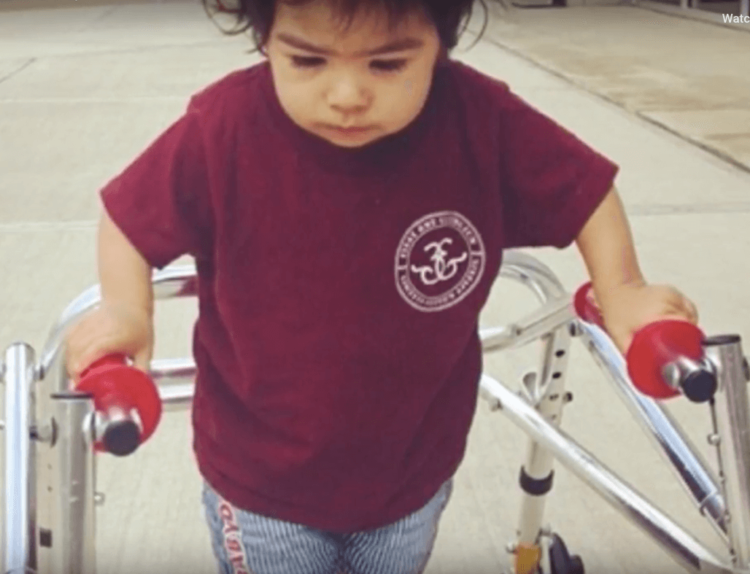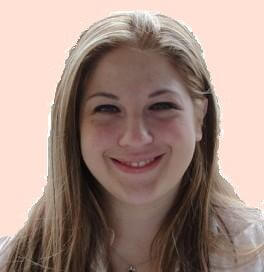
I am walking down the hallway at school. I hear whispers and know they are about me. I find a scab on my arm, one of many, and begin to pick it until I draw blood. It’s actually a relief. At the end of the hall, where I need to take a left there is a trashcan, and I want to keep going. I really want to keep going down the hallway, but I feel stuck. I’m worried about what they are saying and then I am chewing on trash because I’m hungry. I can’t help it that I am hungry. And then they make fun of me.”
Meet Amy. She works in a library and loves to read. She is missing a piece of chromosome 15 that came from her father, which is the most common cause of Prader-Willi syndrome. The preceding paragraph was her answer when I asked her to take me through a day of her life. She is tearful because she doesn’t want her syndrome to define her. She deals with it every day of her life.
Prader-Willi syndrome affects approximately one in every 10,000 individuals. It is a disease mediated by abnormal functioning of the hypothalamus, which is a region of the brain important for establishing set-points for the regulation of hunger, sleep, temperature, thirst, among other factors. It is characterized by early disinterest in eating and weak muscles that transitions through stages of nutrition ultimately becoming an inability to feel full. Other associated findings include stubbornness and obsessive-compulsive type symptoms. Persons with PWS are shorter than other children their age due to a deficiency of growth hormone. They also experience disturbances in sleep.
I met Amy over a decade ago when I was working at Georgetown University in Washington, D.C. Since that time we have started her on growth hormone, which has been shown to have benefits beyond enhancing growth including improving cognition. She has participated in clinical trials; we have tried many medications for anxiety and skin-picking, among some of her other symptoms, but she has not had much relief. By connecting with other parents of individuals with Prader-Willi syndrome, Amy’s mother learned about the anecdotal benefits of a very low-carbohydrate diet called the ketogenic diet. But this change in her diet did not help her hunger and anxiety like we all had hoped. And throughout all these attempted treatments, most of all Amy wants to know why she never feels full, why she thinks everyone is talking about her even when they are not, and why she cannot control her skin-picking.
She asks me these questions every single time I talk with her. Sometimes in one appointment she can ask me this question over and over again and I cannot distract her. I’d like to think I can explain it to her, and I try. However, the reality is we really don’t know the answer to Amy’s question – why does she have these particular symptoms? Despite the progress of our knowledge about PWS, the underlying cause of each symptom remains a mystery.
The quest for a known cause to PWS is all-consuming to Amy, her family, and me. We know there are phases of nutrition through which individuals with PWS progress. We don’t know the cause of the progression through the stages. It’s not for lack of trying. There just seems to be a missing piece of the jigsaw puzzle.
Amy and all individuals with PWS are inspirations to keep trying. The field is moving forward to bring new therapies (see additional resources below). This is a reason to have a lot of hope. We have clues as to the biological pathways involved and we must unite as a community with persons from all disciplines to advance science toward the ultimate goal – a specific therapy for Prader-Willi Syndrome.
 Dr. Jessica Duis is an Assistant Professor in the Division of Medical Genetics and Genomic Medicine in the Department of Pediatrics at Vanderbilt University Medical Center. She recently came to Vanderbilt from the Johns Hopkins Hospital in Baltimore, Maryland. She completed her training in pediatrics as well as in genetics during which time she saw adults and children with genetic disorders. She focused her work on imprinting disorders and in particular, Prader-Willi syndrome. Dr. Duis dedicated her research to the field of epigenetics, which studies changes gene expression without detectable changes in the sequence of the gene. Specifically, she has focused on the inability to feel full and the sleep abnormalities that occur in individuals with PWS. She has developed a multidisciplinary team at Vanderbilt to focus on the comprehensive and evidenced-based care of persons with Prader-Willi syndrome. They hope to participate in clinical trials and discover new targeted therapies that are specific to PWS. Dr. Duis has three children of her own including twins, Gracie and Henry (age 3), and Ariella (age 1).
Dr. Jessica Duis is an Assistant Professor in the Division of Medical Genetics and Genomic Medicine in the Department of Pediatrics at Vanderbilt University Medical Center. She recently came to Vanderbilt from the Johns Hopkins Hospital in Baltimore, Maryland. She completed her training in pediatrics as well as in genetics during which time she saw adults and children with genetic disorders. She focused her work on imprinting disorders and in particular, Prader-Willi syndrome. Dr. Duis dedicated her research to the field of epigenetics, which studies changes gene expression without detectable changes in the sequence of the gene. Specifically, she has focused on the inability to feel full and the sleep abnormalities that occur in individuals with PWS. She has developed a multidisciplinary team at Vanderbilt to focus on the comprehensive and evidenced-based care of persons with Prader-Willi syndrome. They hope to participate in clinical trials and discover new targeted therapies that are specific to PWS. Dr. Duis has three children of her own including twins, Gracie and Henry (age 3), and Ariella (age 1).
Resources:
The Monroe Carroll Jr. Children’s Hospital, where Dr. Duis works, has started an interdisciplinary program with the goal of providing excellent comprehensive care to individuals with Prader-Willi and collaborating with other centers all over the world toward this common goal. They hope their efforts will lead to life-changing therapies for PWS. For more information and to contact them, click here.
For more information about PWS, visit: PWSAUSA.org


Grok Nation Comment Policy
We welcome thoughtful, grokky comments—keep your negativity and spam to yourself. Please read our Comment Policy before commenting.